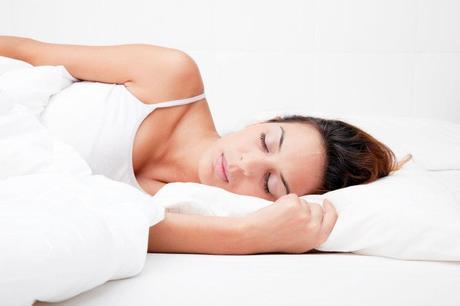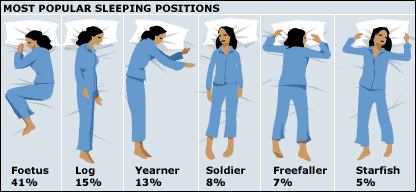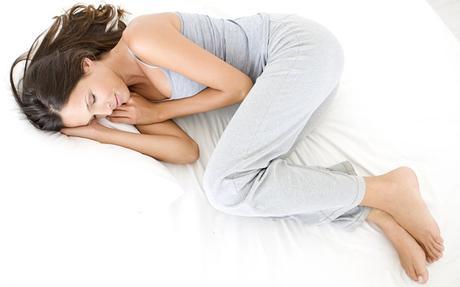Have you ever wondered what your sleep position says about you? It may come as a surprise, but sleep researchers have been studying sleep positions for years and have found a correlation between sleep position and personality.

Sleep Positions and Personality
Professor Chris Idzikowski, director of the Sleep Assessment and Advisory Service, found six common sleeping positions:
The Foetus
This is the most common sleeping position, with more than twice as many women as men adopting this position.
The Log
This is when people lie on their side with both arms down by their side.
The Yearner
Describes people who sleep on their side with both arms out in front.

The Soldier
This is where the person lies on their back with both arms pinned to their sides.
The Freefaller
This sleeping position describes someone lying on their front with their hands around the pillow, and head turned to one side.
The Starfish
This is where someone lies on their back with both arms up around the pillow.
Why is it important to sleep in the right position?
Whatever your sleep position, it is generally recommended that you sleep on your side to prevent sleep interruption and help you rest in a more comfortable position.
However, for many back sufferers sleeping on their side can cause the lower spine to be rotated slightly, contributing to back or hip pain. One way of preventing this problem is to place a pillow between the knees and thighs. This helps support the body and realign the spine.

Back sleepers who experience lower back pain can simply place a pillow under the knees to help maintain the normal curve of your lower back, or place a small, rolled towel under the small of the back for additional support.
Sleeping on your front can be particularly hard on the back. One way of reducing the strain is to place a pillow under the pelvis and lower abdomen and again under the head.
If changing your sleeping position still doesn’t provide you with pain relief, maybe it’s time to look at whether your bed and mattress are giving you the right support.
Research conducted by The Sleep Council, in conjunction with BackCare, the charity for healthier backs found that 98% of the people surveyed agreed that a good, supportive bed could help a bad back.
Eight out of ten people suffer from back problems at some time in their lives and many now choose to buy an orthopaedic bed for this very reason. The design and features are aimed at supporting and softly surrounding the body to ensure that aches and pains are reduced during sleep hours.

Another common reason for choosing an orthopedic bed is one of pure comfort. The quality and support offered by this type of bed appeals to a broader audience, whether they experience back problems or not.
What to do next
Retailing a wide selection of beds and mattresses, Dalzell’s recommend you come in store and try different tensions. Ideally your mattress should mold to your body; too soft and your body will slouch which could result in back pain; too firm and your hips and shoulders pressure points could feel discomfort.

Try this simple test to ensure you get the right support from your mattress. Lying on your back on the bed, place the flat of your hand into the small of your back and slide your hand. If your hand moves too easily, the bed may be too hard for you; if it’s difficult to move your hand, then the bed may be too soft.
With over 500 beds in stock from leading brands Kaymed, King Koil, Respa, and Staples there’s something for everyone at Dalzell’s. What’s more, we offer a Free Delivery and Recycling Service across Northern Ireland and Counties Louth, Monaghan and Dublin, with competitive rates across the rest of Ireland. Delivery is also available at competitive rates throughout the rest of Ireland, simply ask us for details. With additional discounts for Multibuy, and our Price Promise, you can be sure you’re getting a great deal because we appreciate your business! Call, Email or Visit Us In-store today.

